An air compressor is vital for various industries, from automotive repair to manufacturing. It provides a convenient and efficient way to power pneumatic tools, making tasks easier and faster.
However, like any mechanical device, an air compressor can experience issues and require maintenance. One common problem that many users face is the presence of oil in the compressed air. This issue can not only affect the quality of the air being produced but also cause damage to the compressor itself.
As a result, it is crucial to understand why your air compressor may be blowing oil and what steps you can take to address it. Here we will explore why is my air compressor blowing oil?
And the reasons behind oil in your compressed air, the potential consequences, and the necessary measures to prevent and resolve this problem. With this knowledge, you can ensure your air compressor’s optimal performance and longevity, saving you time, money, and frustration in the long run.
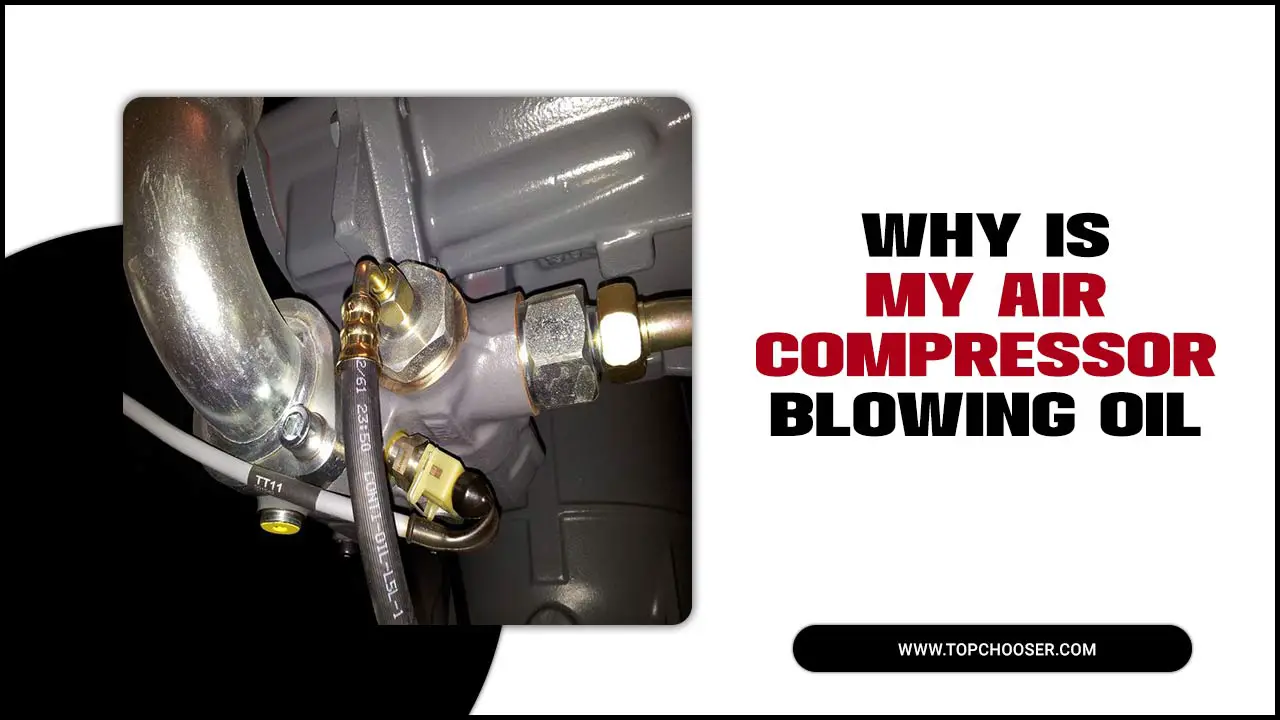
What Is Air Compressor Oil?
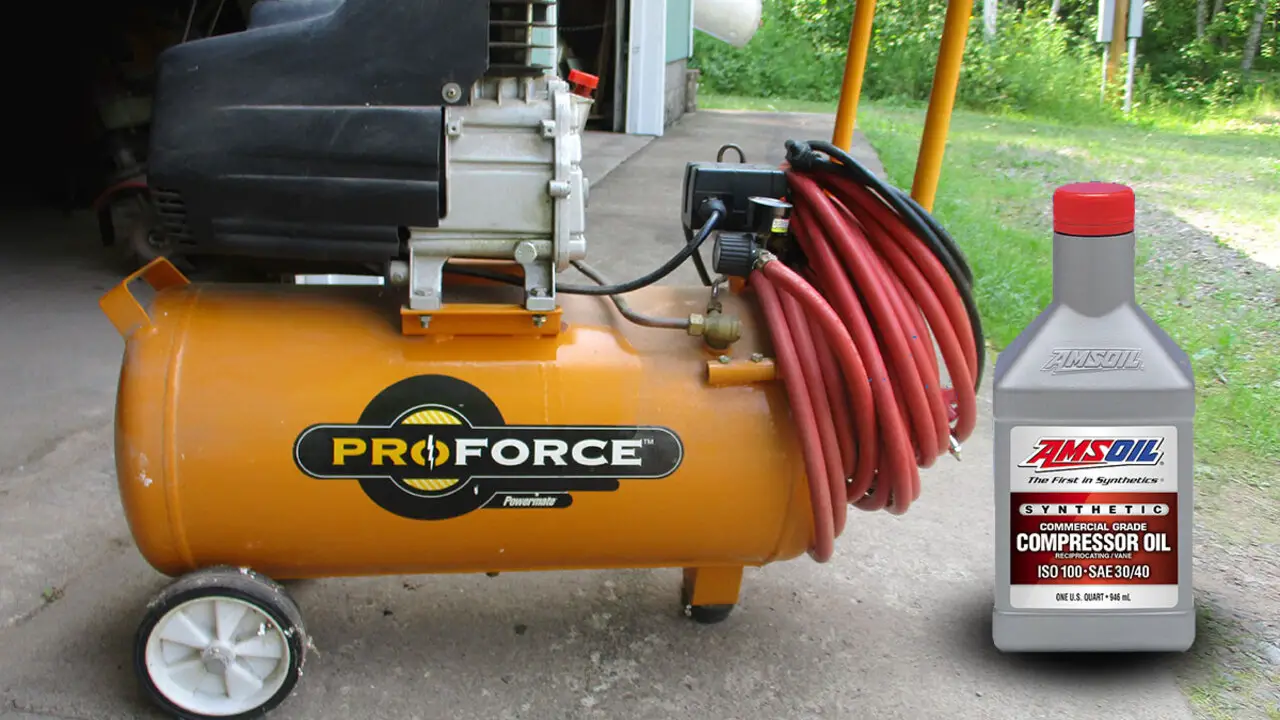
Air compressor oil is a specialized lubricant that is designed to withstand the high temperatures and pressures generated by air compressors. It helps to reduce friction between moving parts, preventing wear and tear and ensuring smooth operation.
Air compressor oil also helps to seal gaps and prevent leaks, allowing the compressor to maintain optimal pressure levels. It also helps dissipate heat, keeping the compressor cool during operation.
Using the correct type of air compressor oil for your specific compressor is important, as using the wrong type can lead to performance issues and potential damage. Regular maintenance, including checking oil levels and replacing oil as needed, is essential for keeping your air compressor running smoothly.
Why Is My Air Compressor Blowing Oil? – Reasons And Solutions
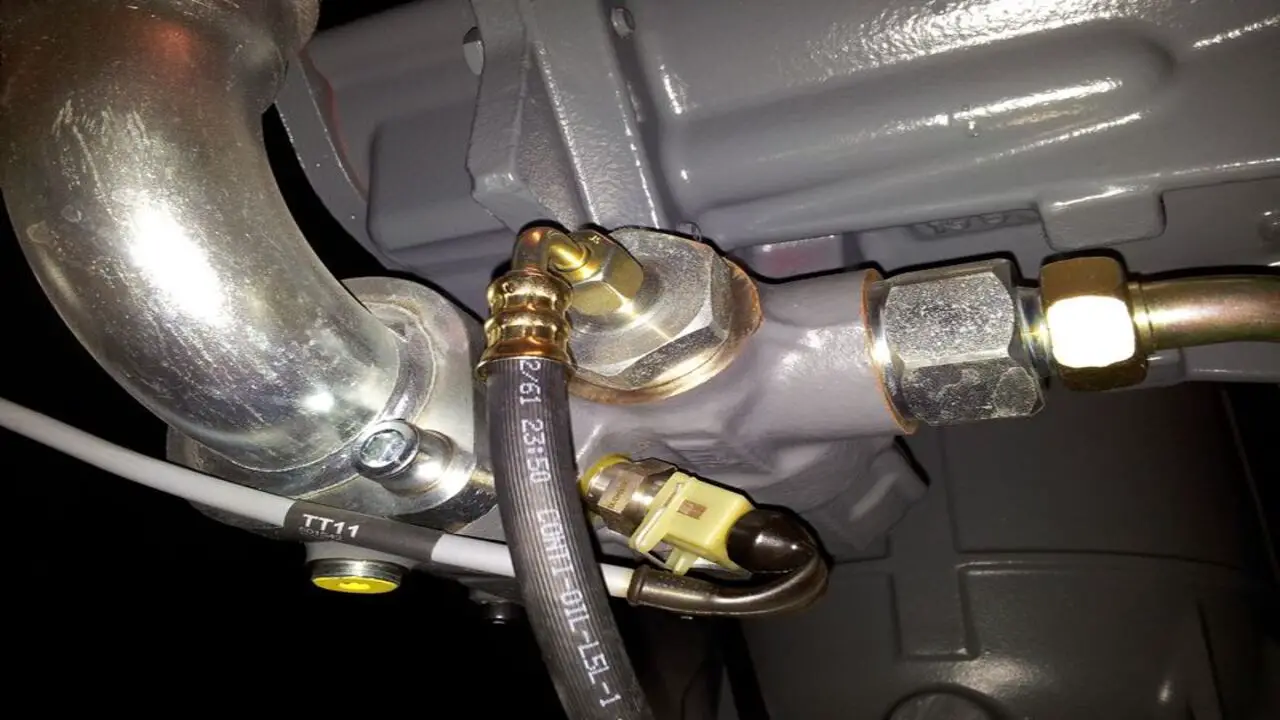
If your air compressor is blowing oil, there could be several reasons for this issue. If your air compressor is blowing oil, it’s important to address this issue promptly to prevent further damage and ensure optimal performance.
Consulting with a professional or referring to your air compressor’s user manual for troubleshooting guidance may help identify and resolve the specific cause of this problem. Here are four common reasons on why is my air compressor blowing oil?
1.Damaged Or Faulty Valves
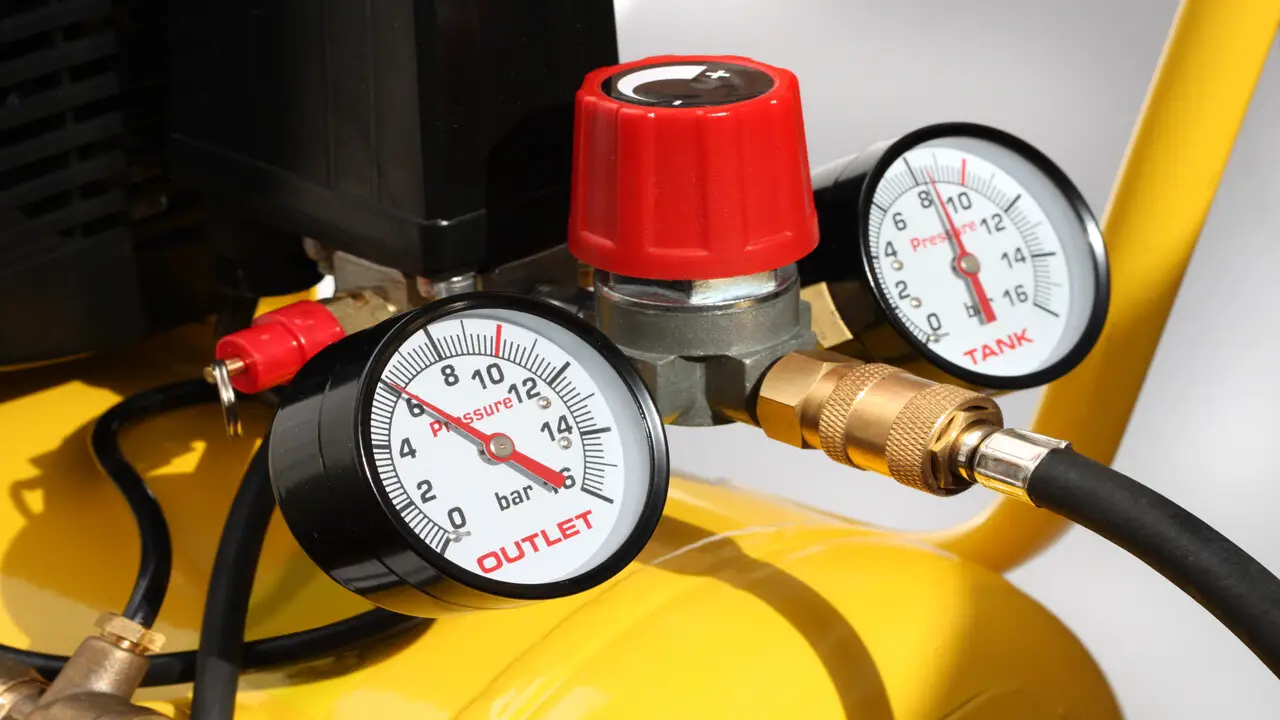
Valve malfunctions in an air compressor can result in oil leaks, which can be a common problem. To prevent blowback, it is vital to maintain the valves regularly. Identifying and promptly addressing damaged or faulty valves is crucial to ensure optimal compressor performance.
Ignoring valve issues can have serious consequences, including reduced air pressure, increased downtime, and potential damage to other components. It is recommended to seek professional inspection and repair for any valve-related problems. By taking proactive measures and addressing valve maintenance, you can minimize the risk of oil leakage and ensure the efficient operation of your air compressor.
Solutions
If your air compressor is blowing oil, it may be due to damaged or faulty valves. There are a few possible solutions to this issue. First, you can try replacing the valves in your air compressor. This can be done by purchasing new valves and following the manufacturer’s instructions for installation.
Another solution is to clean the existing valves thoroughly. Sometimes, oil buildup or debris can cause valves to malfunction. By cleaning them carefully, you may be able to restore their proper functioning and prevent oil from being blown out.
Additionally, it is important to regularly check and change the oil in your air compressor. Over time, oil can become dirty or contaminated, which can lead to issues with the valves. By maintaining clean oil, you can help prevent problems from occurring.
If these solutions do not resolve the issue, it may be necessary to consult a professional or contact the manufacturer for further assistance. They will have the expertise to diagnose and repair any underlying mechanical issues causing your air compressor to blow oil.
2.Leaks In The Compressor Hose
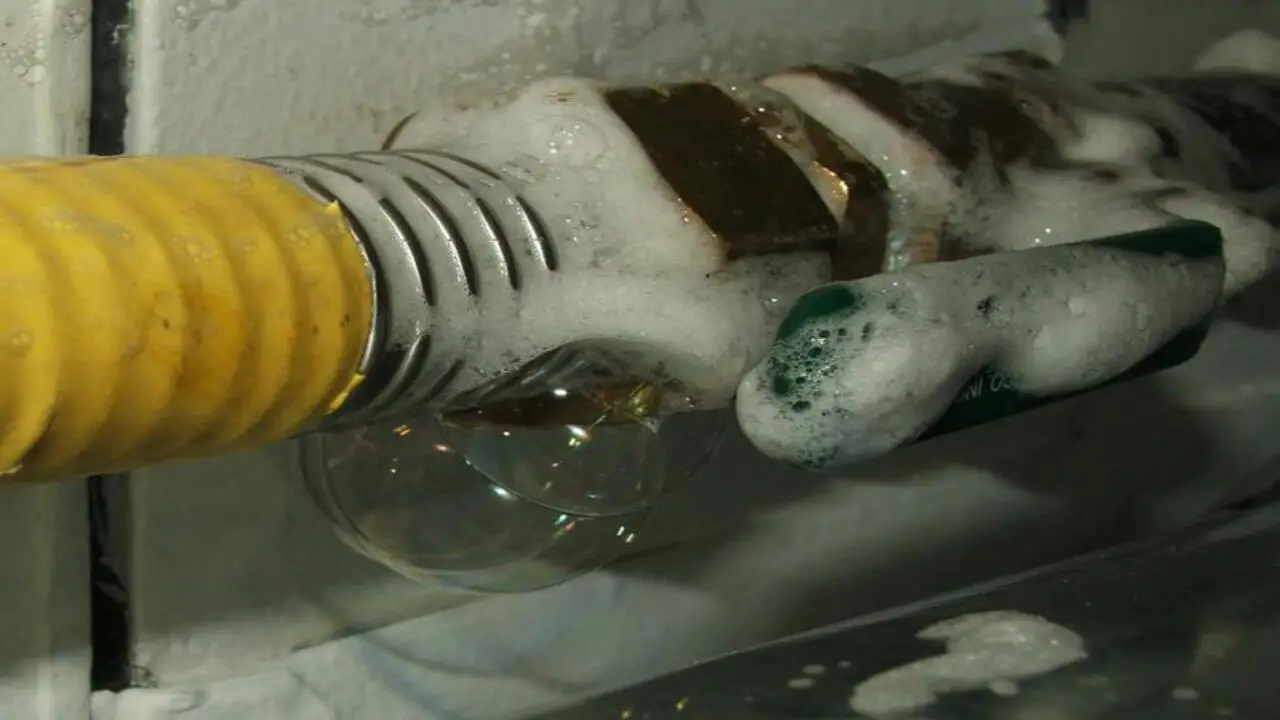
It is crucial to understand the common causes and detrimental effects of hose leaks on oil blowback from the compressor. Hose leaks can lead to a loss of air pressure and result in oil contamination within the compressed air system.
Regularly inspecting a high-quality air filter is essential to identify problem areas and prevent future leaks. When pneumatic tools are in use, it is necessary to inspect the hose for any signs of damage or wear.
Repairing compressor hose leaks promptly can minimize downtime and ensure optimal performance. By addressing leaks and using high-quality hoses, you can prevent oil blowback and maintain the efficiency of your air compressor.
Solutions
If your air compressor is blowing oil, there may be leaks in the compressor hose that are causing the issue. By addressing these potential issues, you can effectively resolve the problem of your air compressor blowing oil due to leaks in the compressor hose. Remember to always prioritize safety and consult a professional if needed. To solve this problem, follow these steps:
- Inspect the compressor hose: Check the entire length of the hose for any visible cracks or damage. If you find any, replace the hose immediately.
- Tighten connections: Ensure that all connections between the compressor and the hose are tightened properly. Loose connections can cause oil leaks.
- Use Teflon tape: Apply Teflon tape to the threads of any fittings or connectors to create a tight seal and prevent oil leaks.
- Check gaskets and seals: Inspect all gaskets and seals for wear or damage. Replace any faulty gaskets or seals to prevent oil from escaping.
- Monitor oil levels: Keep an eye on the oil levels in your compressor regularly. If you notice a significant decrease in oil levels, it may indicate a leak in the hose.
3.Overfilled Oil Reservoir
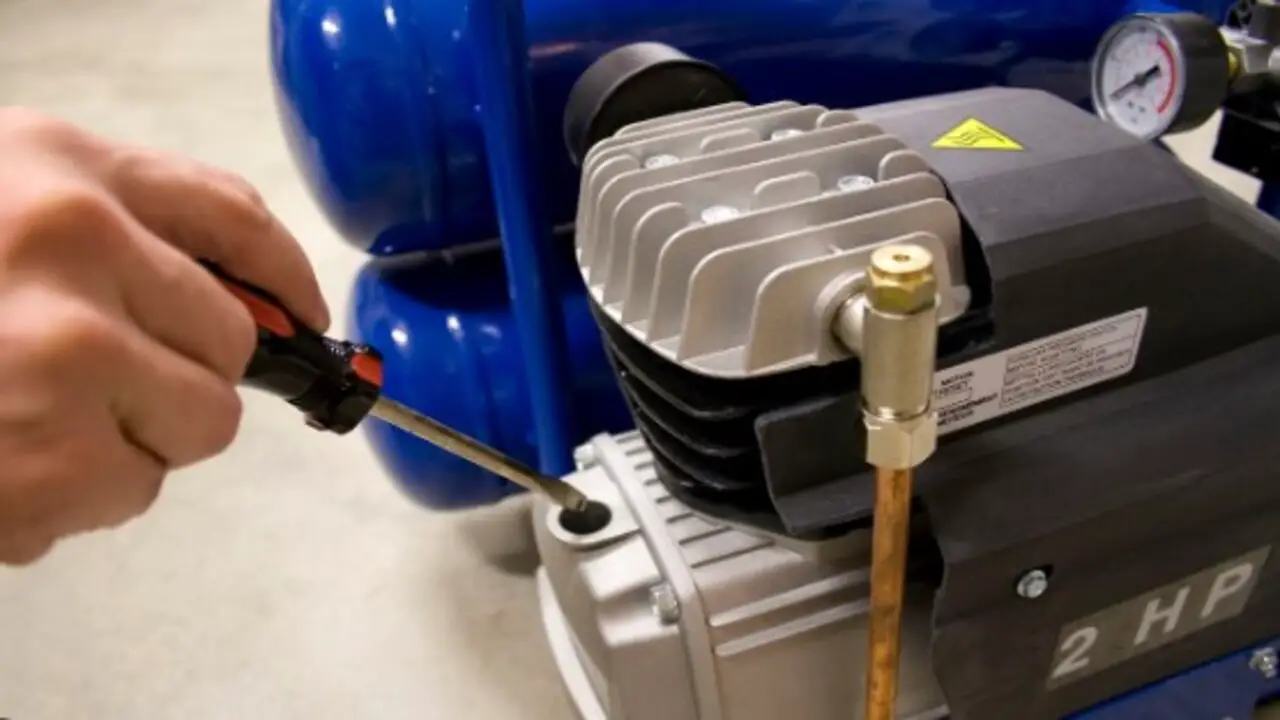
Proper oil level maintenance in your air compressor is essential to avoid blowback and other issues. Overfilling the oil reservoir can have serious consequences, including increased pressure that may cause oil to be blown out of the compressor.
To prevent this, it’s important to know the recommended oil levels for different air compressors and follow them diligently. Regularly checking and adjusting the oil level is crucial for smooth operation.
By following the manufacturer’s guidelines for oil reservoir capacity, you can ensure that your compressor operates efficiently without any unnecessary downtime. Remember, maintaining the proper oil level is one of the key steps in ensuring your air compressor’s longevity and optimal performance.
Solutions
If your air compressor is blowing oil, one possible cause could be an overfilled oil reservoir. Fortunately, there are a few solutions to this problem. First, you can drain some of the oil from the reservoir to bring it down to the appropriate level. Be sure to consult your compressor’s manual for instructions on how to properly drain the oil.
Another option is to replace the oil filter, as a clogged or dirty filter can cause excess pressure and lead to oil blowback. Additionally, it may be helpful to check for any other issues that could be causing the overfilled reservoir, such as a faulty pressure relief valve or worn piston rings. By addressing these potential causes and taking preventative measures, you can help prevent your air compressor from blowing oil in the future.
4.Worn Out Seals
Seals play a crucial role in preventing oil leakage from the air compressor. When seals wear out, it can lead to oil blowback, causing problems like decreased performance and increased downtime. Signs of worn-out seals include oil leaks around the seal area and reduced air pressure. To address these issues, it is important to replace the worn-out seals.
Regular inspection and maintenance of seals are necessary to ensure optimal performance. When choosing seals for your air compressor, opt for high-quality ones designed specifically for your model. By taking these steps, you can prevent oil blowback and maintain the efficiency of your air compressor.
Solutions
If your air compressor is blowing oil, it could be a sign of worn-out seals. Over time, the seals in your compressor can become worn or damaged, causing oil to leak into the compressed air system. This can lead to reduced efficiency and performance of your compressor.
Fortunately, there are solutions to address this issue. One option is to replace the worn-out seals with new ones. This can help restore proper functioning and prevent further oil leaks.
Another solution is to regularly inspect and maintain your compressor to ensure that the seals are in good condition. Regularly checking for signs of wear and tear, such as oil leaks or decreased performance, can help you catch any issues early on and prevent costly repairs down the line.
How To Detect Oil Leakage In Your Air Compressor?
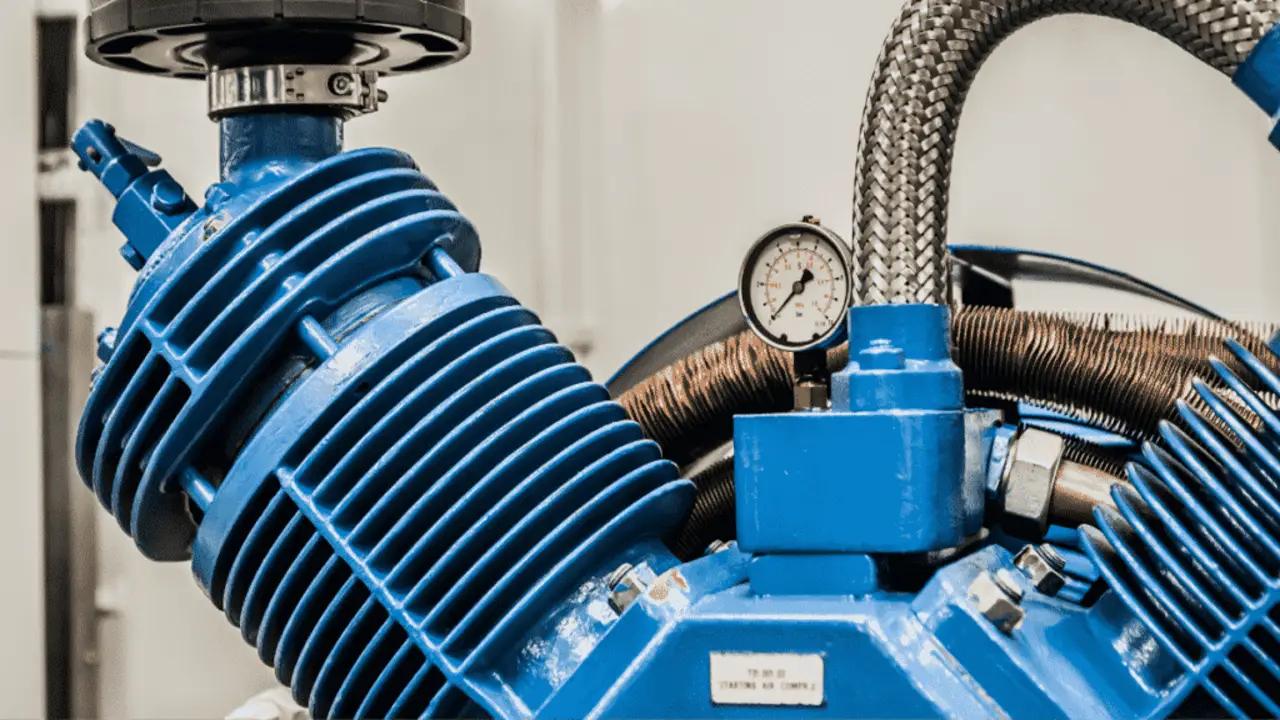
Detecting oil leakage in your air compressor is crucial to prevent potential damage and ensure optimal performance. Here are some steps to help you detect oil leakage in your air compressor. By taking these steps, you can maintain the efficiency and longevity of your compressor while preventing costly repairs down the line.
- Visual inspection: Check the exterior of your air compressor for any visible signs of oil leakage, such as oil stains or puddles around the unit.
- Oil level check: Regularly monitor the oil level in your compressor. If you notice a sudden drop in oil level, it may indicate a leak.
- Inspect fittings and connections: Examine all fittings, connections, and seals for signs of damage or wear. Tighten loose fittings and replace damaged seals if necessary.
- Use a leak detection solution: Apply a leak detection solution or soapy water to suspected areas where leaks may occur. If bubbles form, it indicates a leak.
- Inspect hoses and tubing: Carefully inspect all hoses and tubing for cracks, holes, or loose connections. Replace any damaged components promptly.
- Monitor compressed air quality: If you notice an oily residue or excessive moisture in the compressed air output, it suggests an internal oil leak. This requires immediate attention and professional repair.
Remember, regular maintenance and inspections are key to promptly detecting and addressing oil leaks in your air compressor.
Tools For Detecting An Air Compressor Leak
Detecting an air compressor leak is crucial for maintaining the efficiency and durability of your equipment. There are a few tools that can help you identify if your air compressor is blowing oil:
- Visual Inspection: Start by visually inspecting your air compressor for any signs of oil leakage. Look for puddles or stains around the compressor and oil buildup on the fittings and hoses.
- Pressure Gauge: Connect a pressure gauge to the air outlet of your compressor and monitor the pressure readings. If the pressure drops significantly over a short period, it could indicate a leak.
- Soapy Water Test: Mix a soapy water solution and apply it to all connections, fittings, and air compressor hoses. If you see bubbles forming, it indicates a leak in that area.
- Ultrasonic Leak Detector: This device uses sound waves to detect leaks in pressurized systems. It can help identify even small leaks that are not easily visible.
Using these tools, you can quickly identify oil leaks in your air compressor and take appropriate measures to fix them, ensuring optimal performance and preventing further damage.
Conclusion
It is important to address the issue of an air compressor blowing oil as soon as possible. Ignoring this issue can lead to further damage to your air compressor and potentially costly repairs. By understanding the common reasons behind oil leakage, such as damaged valves, compressor hose leaks, overfilled oil reservoirs, and worn-out seals, you can take the necessary steps to fix the problem.
Regular maintenance and inspections are crucial in detecting oil leakage in your air compressor. Consider signs like excessive oil consumption, oil puddles under the compressor, or unusual noises.
Utilize tools like soap bubble tests or ultrasonic leak detectors to pinpoint the exact location of the leak. Taking prompt action will ensure the longevity and efficiency of your air compressor. We hope you now understand why is my air compressor blowing oil?
Frequently Asked Questions
[rank_math_rich_snippet id=”s-f3c6442e-c57c-4d96-903c-5e5a78d86d4a”]

I am passionate about home engineering. I specialize in designing, installing, and maintaining heating, ventilation, and air conditioning systems. My goal is to help people stay comfortable in their homes all year long.
